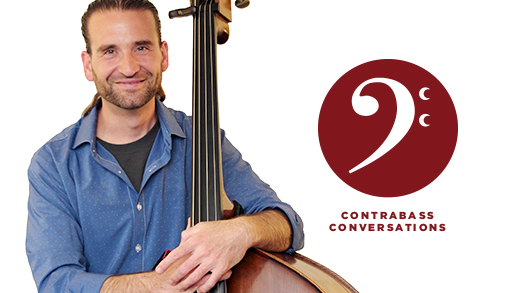Today we talk with Los Angeles Philharmonic bassist Brian Johnson, who has just released an app for iOS called Learn Double Bass. What a cool app! This app (currently free!) contains over 70 videos that clearly cover a specific bass topic. These videos range from the very first steps (tuning the bass, rosining the bow) to more advanced concepts like spiccato. In addition to these videos, the app contains a great number of helpful PDF resources.
Brian also teaches at California State University at Fullerton and at the Idyllwild Arts Academy, and he was a member of the Kansas City Symphony and Oregon Symphony prior to his current position with the Los Angeles Philharmonic. It’s great to see this kind of quality content from a professional orchestra player. I can see everyone from a beginning bassist to someone gearing up for orchestral auditions benefiting from this app, and I think that teachers in particular (both classroom and private) will find this immensely useful.
Check out the app here, and follow along with Learn Double Bass on Facebook and on Instagram. Brian is putting out some great practice tips on Instagram as well as some excellent bass shots.
Here are a few screenshots to give you an idea of the app interface (these are taken on an iPhone):











